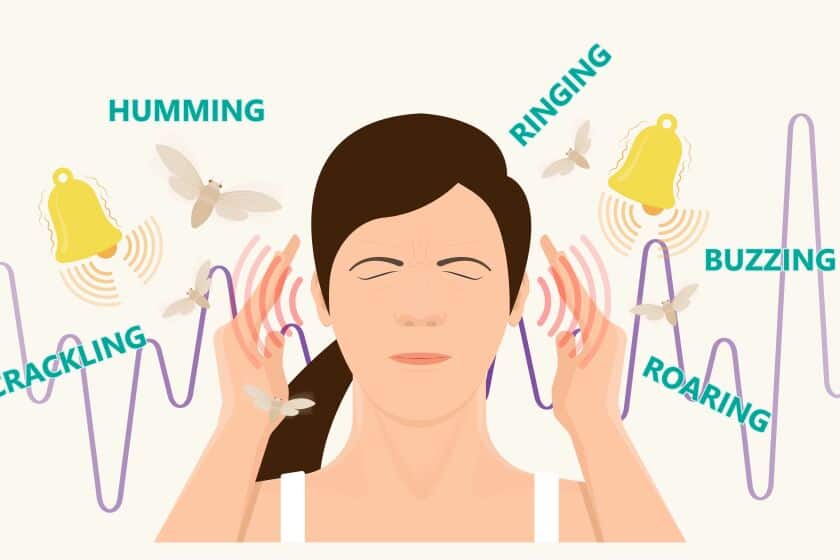We have had the pleasure of providing audiology services at Pinnace Ear Nose Throat & Allergy for the past 10 years. Prior to opening Hearing Solutions of North Carolina in 2011, I worked at Carolina Ear Nose & Throat (now Charlotte Ear Eye Nose & Throat) in Concord for 21 years. I really enjoy the diversity of both locations. The emphasis on diagnostics of a medical clinic blends well with the rehabilitation aspects of treating hearing loss and tinnitus in a private practice setting.
I’d like to share a story with you about Faye. I originally saw her in 2019. She was complaining of annoying crickets (tinnitus). There were no underlying medical issues causing her crickets, so no treatment or additional testing was needed. She returned last May and saw Charis Bostian, NP. Charis recommended she have a hearing evaluation which she declined stating she was not ready for hearing aids…so why have a hearing test?
Evidently her tinnitus was getting more annoying. Last week she scheduled another appointment with Dr. Whitaker to see if he had any additional recommendations to treat her tinnitus. As part of proper protocol, I saw her for a hearing evaluation prior to seeing Dr. Whitaker. She reported her hearing loss has progressed and her crickets are getting louder. She was hoping “she just didn’t have to live with it”. She is now ready for treatment.
There are approximately 50 million people in the USA with tinnitus and 2-5 million actual tinnitus patients. For tinnitus patients, the emotional component of their tinnitus is paramount. There are two essential factors in tinnitus: the sound perceived and the reaction to it. Generally, people with tinnitus dismiss, ignore, or minimize it such that it does not impact their quality of life. However, among tinnitus patients, there is a significant range of unique experiences and often a degradation of quality of life. Tinnitus may exacerbate or cause insomnia, cause difficulty hearing, impair concentration, create stress, anxiety, and depression, and may cause problems at work and home and many impact socialization ability. Rates of depression in people suffering with tinnitus vary from 33-60%. The perception of and structural changes associated with tinnitus are correlated with an increased risk of dementia inducing early-onset dementia.
Tinnitus can be intermittent or constant and may be described as sounding like a tone, multi-tonal, buzzing, ringing, crickets, whistling, humming, roaring, chirping, static rushing sounds, high pitch, low pitch, electric wire noise, and more. Tinnitus may be perceived within the head or localized to one or both ears. Central and bilateral tinnitus (both ears) are far more common than in one ear (unilateral). All cases of unilateral tinnitus should be referred to an ENT, such as Dr. Whitaker, for medical evaluation and management.
It is rare to know the specific etiology of tinnitus in most cases. The most common risk factors are age and hearing loss. It is estimated that 80% of people with tinnitus have hearing loss and 80% of the people with hearing loss have tinnitus. It seems likely that in these cases, hearing loss and tinnitus share the same etiology.
Depending on the etiology, tinnitus may be effectively treated by in-office or surgical interventions, hearing aids, cognitive behavior therapy, and more. In general, hearing aids offer the best tinnitus treatment option most of the time for people with and without hearing loss. New tinnitus treatments appear every year and most disappear just as quickly. Dietary supplements and other over the counter, natural, health-food, herbs and vitamins have not been shown to be beneficial in peer-reviewed scientific studies.
Due to the uncontrolled variable associated with tinnitus, as well as the idiosyncratic nature of tinnitus patients we do not anticipate a “cure” for tinnitus in the foreseeable future. However, the lack of a cure does not represent a dead-end as treatment options continue to be developed, and ever-increasing new knowledge already results in greater than 90% successful treatment.
Faye does not have to live with her crickets and decided to schedule a Functional Hearing Assessment to treat both her hearing loss and tinnitus. If you would like to schedule an appointment to evaluate your tinnitus/hearing concerns, give Diane or Jamie a call at 704-633-0023. Visit our website: www.hearingsolutionsofnc.com. Dr. Mussler, Jane, Cheryl, and I look forward to seeing you soon.

